Recycling Program For University Waste
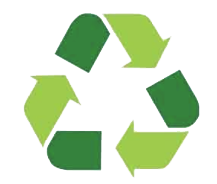
Recycling Program For University Waste (WS.1)
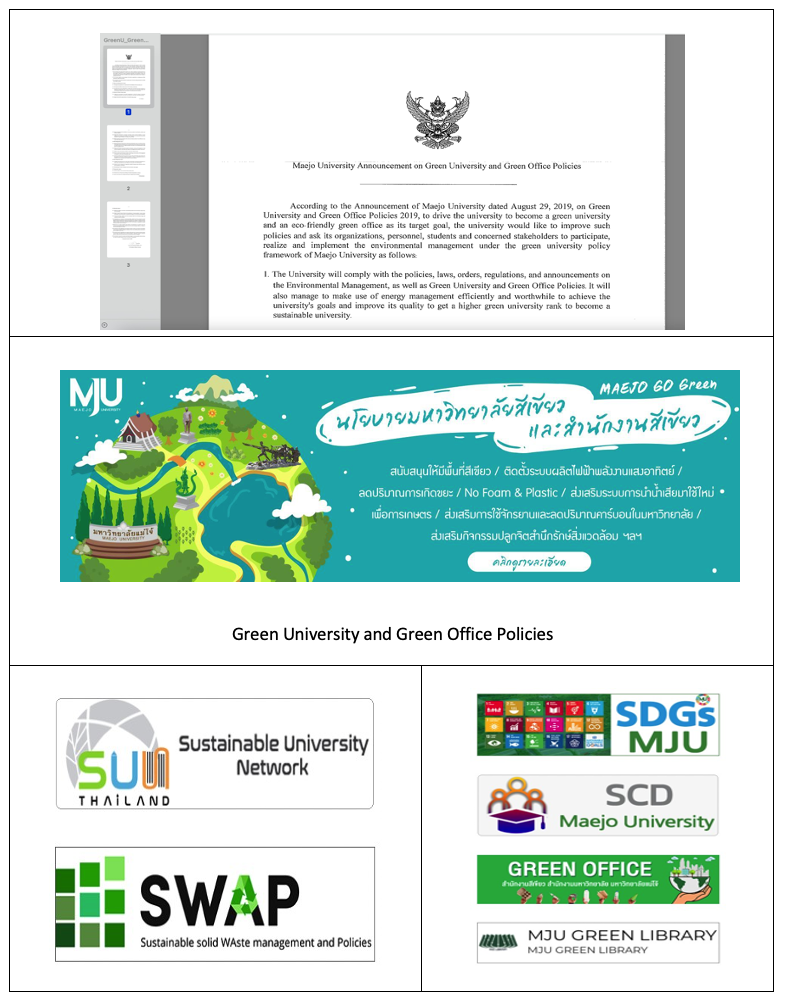
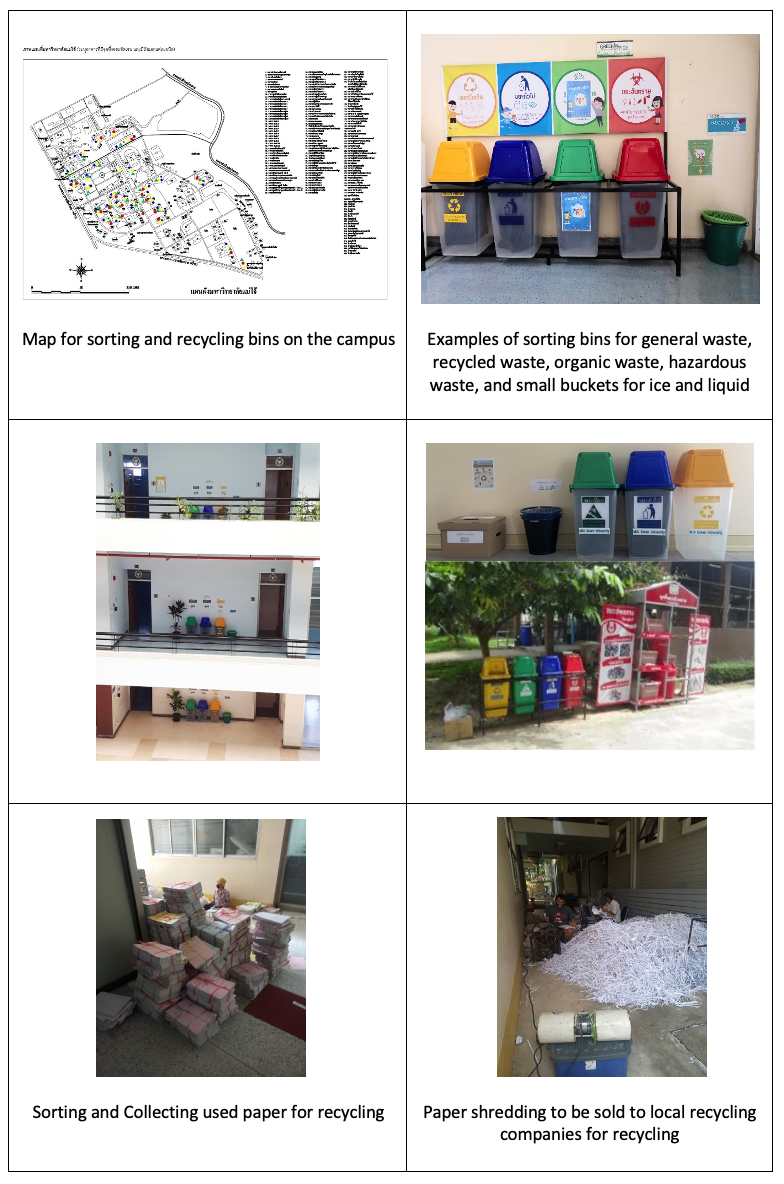
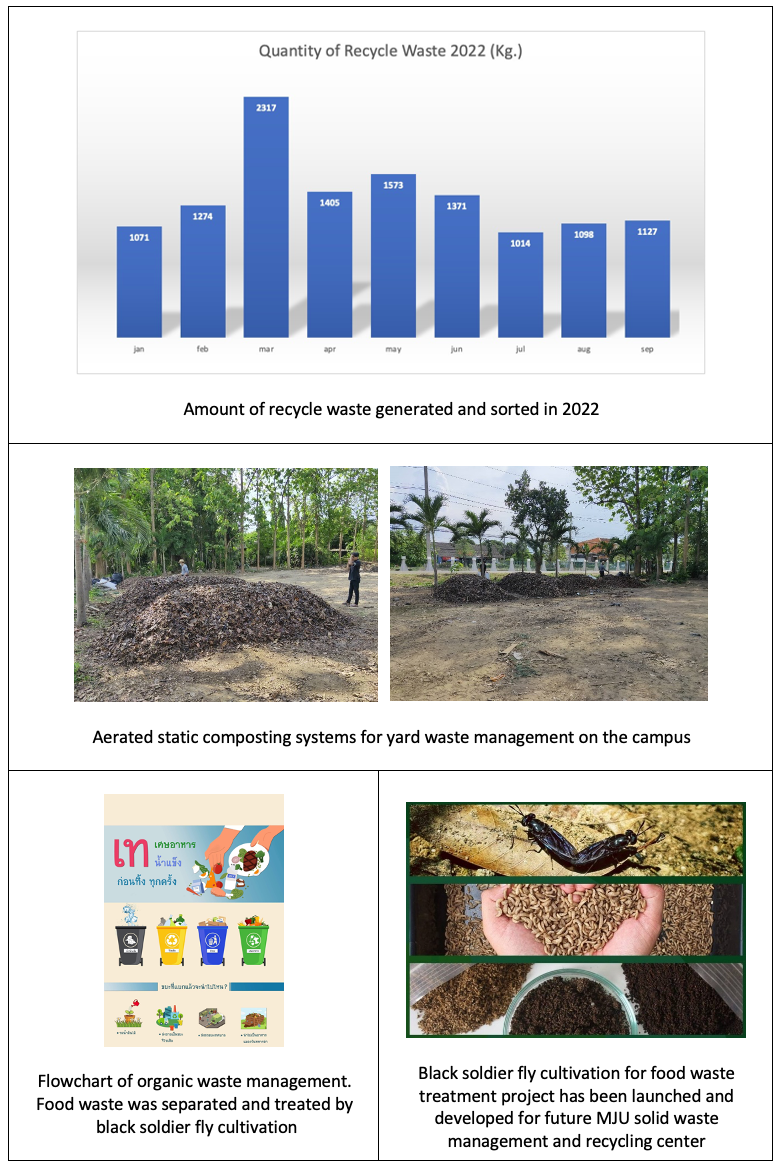
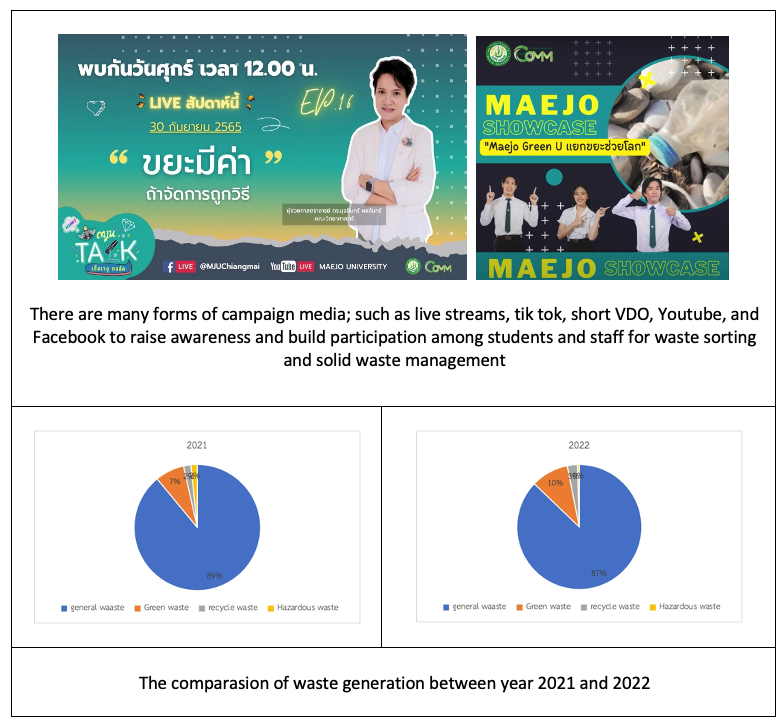
Description:
Since 2018, Maejo waste management teams, who have been assigned and supported by the university management board, have driven and carried out waste management activities for Maejo university, Chaing Mai campus. In recent years, MJU’s solid waste policy for Green university (https://green.mju.ac.th/) and the Green office (https://maejo.link?L=656j ) were updated, announced, and acted. In order to steer the direction of waste management in the university, MJU also joined several projects such as SUN(Sustainable University Network)Thailand
(https://sunthailand.net/),SWAP(Sustainable solid Waste management and Policies) (https://www.swap-eplus.org/),SDGs(Sustainable Development Goals) (https://sdg.mju.ac.th/MainPage.aspx),SCD(Sustainable Community Development) (https://sdg.mju.ac.th/MainSCD.aspx) and Green Library (https://library.mju.ac.th/greenlibrary/)
Regarding solid waste management strategy and recycling program, we targeted waste reduction especially, foam (food container) and single-used plastics and waste sorting and recycling. We not only plastics and recycling materials but also aimed for food waste separation and treatment. Since last year (2021), students were not allowed to study onsite due to the COVID-19 pandemic and came back to be onsite in the year 2022, this is very challenging. In 2022, our waste management team has been intensely promoting all relevant waste policies and activities. There were many activities and campaigns have been launched to encourage staff and students to waste sorting, waste reduce, and recycle. Here are summaries;
1. All Faculties through the dean’s meeting have committed to join and act for green office regulation where the solid waste management is one of the key indicators.
2. Apart from each building, MJU has installed sorting and separation bins for collecting 4 types of waste; general waste, organic waste, recycling and hazardous waste in the public area as shown in the map (https://maejo.link?L=nc48)
3. The amount of recycled waste generated in 2022 was 12250 kg which was more than last year (5931 kg in 2021) when students studied from home during the second wave of the Covid pandemic.
4. Regarding organic waste recycling and management, 100% of yard waste from buildings and landscape management was collected and sent for aerated static composting systems. The compost products were used for soil amendments in the university area and packed in the bag for staff distribution. 100% of food waste generated from main canteens was utilized and treated. 70% of food waste were collected for animal feeding, while 5% and 25 % were collected for vermiculture farm and new project on black soldier fly cultivation project, respectively. This new project has been launched and developed for future MJU solid waste management and recycling center as it shown high potential in terms of protein source and compost products.
5. There are many platforms of campaign media; such as live stream, tik tok, short VDO, Youtube and Facebook to give knowledge, to raise awareness and to build participation among students and staff for waste sorting and solid waste management (https://youtu.be/xLWFSaFsGZo), (https://fb.watch/g3yiGFvGuL/,https://fb.watch/g54sU3iEAN/) https://www.facebook.com/MJUChiangmai/videos/627190205690289/
In conclusion, we successfully achieved in waste recycling program in 2022 so far. Comparing to last year, our results of waste generation analysis showed that 2% of general waste and 1% of hazardous waste has been decreased and less than last year, while 3% of organic waste and 1% of recycling waste has increased and they were separated from general bin. This means that we can reduce the amount of general waste that needs to dispose of in the landfill.

